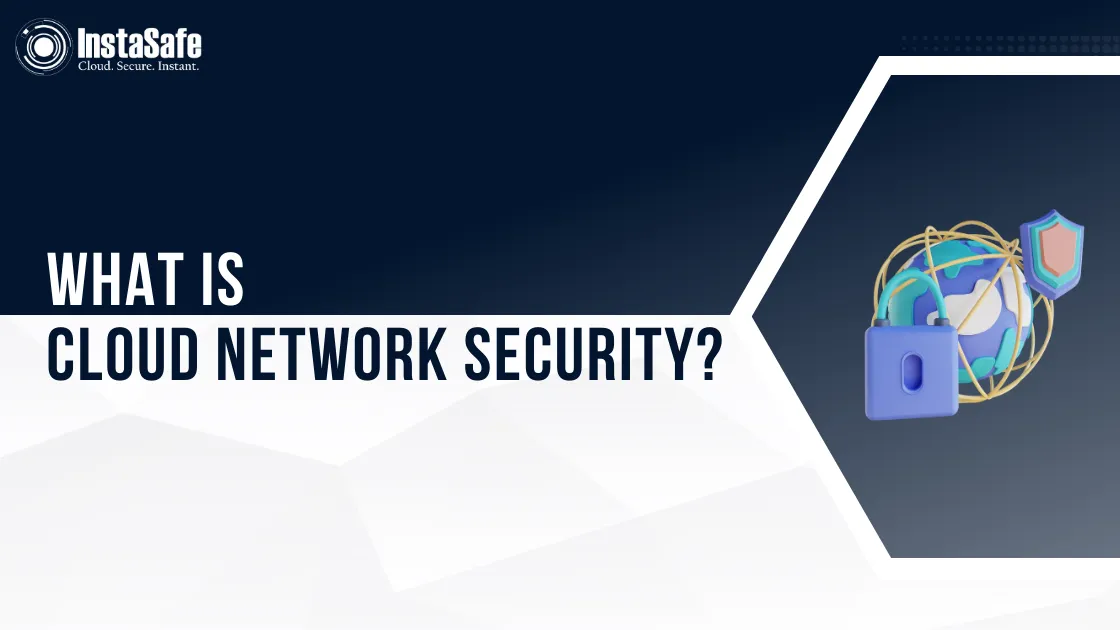What is Cloud Network Security?

With Cloud computing becoming an important facet, as large number of organizations are moving their data and application to the cloud, Cloud Network Security has became a critical component of these operations.
Cloud network security encompasses the protection of cloud networks, systems, and applications from different forms of security threats that include unauthorized access, data breaches, and various cyber-attacks.
Through the contents of this article, we aim to understand what cloud security is, why it’s essential, and what steps a business may take to ensure that its assets on the cloud are secured.
Understanding Cloud Network Security
The primary motive of Cloud network security is to use a combined set of policies, technologies, and procedures to protect cloud networks and their associated resources from numerous security threats.
Cloud network security includes a range of security measures, including firewalls, intrusion detection and prevention systems, virtual private networks (VPNs), identity access management(IAM), data encryption, and data loss prevention (DLP) systems.
Why is Cloud Network Security Important?
The cloud is a shared environment where multiple tenants share and transmit sensitive resources and data over public networks. As businesses and organizations increasingly move their applications and data to the cloud the need for some type of security features arises.
This makes cloud network security integral as cloud networks are susceptible to security threats including data breaches, unauthorized access, and cyber-attacks. A security breach in the cloud can result in a significant loss of sensitive data, financial loss, and reputational damage.
Cloud network security is also vital to ensure compliance with regulations and industry standards, such as the General Data Protection Regulation(GDPR), The Health Insurance Portability Accountability Act (HIPAA), and the Payment Card Industry Data Security Standard (PCI DSS).
How to ensure Cloud Network Security?
1. Cloud Provider Selection
The first step in ensuring cloud network security is to choose a reputable cloud provider that has favorable security measures in place. However, it is essential to conduct due diligence and research the cloud provider's security certifications, data center locations, and security protocols.
2. Access Controls
Access controls are essential for cloud network security. Access controls include password policies, two-factor authentication, and multi-factor authentication. Access controls should be implemented at every layer of the cloud architecture, including the infrastructure, platform, and application layers.
3. Encryption Standards
Data encryption can be implemented at the storage, network, and application layers to protect data in transit and at rest. Encryption keys should be kept secure and managed appropriately.
4. Network Segmentation
Network segmentation is the process of dividing a network into smaller, isolated segments. This allows limitation in the spread of security threats and provides an additional layer of protection. Network segmentation can be achieved through the use of virtual local area networks (VLANs) and virtual private networks (VPNs).
5. Continuous Monitoring
Continuous monitoring is a critical component of cloud network security. It involves continuous monitoring of cloud infrastructure, platforms, applications, and data for security threats, including malware, phishing attacks, and unauthorized access. Continuous Monitoring can be achieved through the use of intrusion detection (IDS) and prevention systems, security information and event management (SIEM) systems, and log analysis tools.
Conclusion
Cloud network security is a fundamental necessity for businesses and organizations that rely on cloud computing. Cloud network security involves a range of security measures, including access controls, encryption, network segmentation, and continuous monitoring. By implementing these security measures, businesses can protect their cloud network, systems, and application from various types of security threats.
It is of foremost importance for businesses to work with reputable cloud providers that integrate robust forms of security measures to fortify their cloud networks.
Key Products
MFA | I&AM | ZTNA | Zero Trust Application Access | Secure Enterprise Browser
Key Features
Single Sign On | Endpoint Security | Device Binding | Domain Joining | Always On VPN | Contextual Based Access | Clientless Remote Access | Device Posture Check
Key Solutions
VPN Alternatives | DevOps Security | Cloud Application Security | Secure Remote Access | VoIP Security
